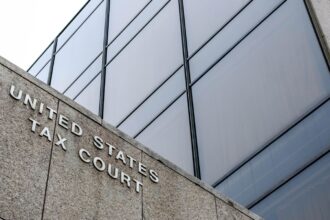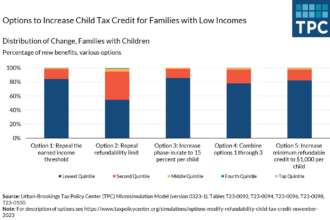Goldman Sachs has agreed to pay $215 million to settle claims for gender discrimination against nearly 3,000 former employees. While the tax treatment of proceeds at settlement is sometimes unclear, and unfair, the parties in this case will have an unusually straightforward result.
In short, Goldman can deduct its settlement payment and legal fees. The claimants won’t be taxed on the legal fee portion of their recoveries. And, to the extent that their recoveries compensate for emotional distress, it won’t be subject to employment tax. For some, recoveries might even be partially tax-free.
Goldman Deductions
Goldman won’t be caught by the so-called “Weinstein Rule,” which disallows deductions by a defendant of settlement payments and legal fees in certain types of cases. The Rule applies to lawsuits involving sexual harassment and sexual abuse, but not gender discrimination – which Goldman was accused.
The payment will be made into a “Qualified Settlement Fund” (QSF) and distributed to class members based on their particular claims. Ordinarily, a defendant can only deduct a settlement payment when it’s received by a claimant. However, the IRS rules typically allow deductions when amounts are paid to and held by a QSF.
Claimant Tax Treatment
Each claimant’s taxation will be largely determined by the purpose of their compensation. In this case, there are at least three types of compensation a claimant may receive. Allocating to each type, and securing IRS respect for such allocations, is a question we’ll address in other articles. In this case, allocations will depend in part on language used by those administering the QSF.
First, in all likelihood, a significant component of each claimant’s recovery will compensate for lost wages. That portion of their recovery would be subject to withholding and employment tax, as well as income tax.
Second, many claimants also suffered, and will be compensated for significant emotional distress. That portion of their recovery would not be subject to employment tax, but will be subject to income tax…unless an exception applies.
Third, let’s consider one of those exceptions. Goldman claimants may be able to avoid tax on settlement proceeds paid for their “medical care,” such as therapy. The exception is found under the “flush language” of Internal Revenue Code Section 104(a). Damages for a “physical injury” are typically received tax-free under Section 104(a)(2). Emotional distress is not a physical injury, and the Code explicitly says so: “emotional distress shall not be treated as a physical injury.”
However, the flush language states that the “emotional distress” rule “shall not apply to an amount of damages…paid for medical care.” Thus, for those who have needed therapy, or will in the future, a portion of their settlement may be tax-free. This is definitely not an analysis one should do on their own.
Claimant Tax Timing
The claimants will benefit from the settlement’s use of a Qualified Settlement Fund (QSF). In general, QSFs allow claimants the option to effect a “structured settlement,” which defers their receipt of (and taxation on) recoveries according to their chosen payment schedules. Typically, structured settlement payments are indirectly funded by an annuity, though market-based options are also available.
This is a primary option regularly incorporated in planning by settlement planners and consultants, including those in the Society of Settlement Planners, National Structured Settlements Trade Association, and American Association of Settlement Consultants.
Claimant Tax Deductions
Ordinarily, claimants who will be taxed on their settlement should also focus on their ability to deduct their legal fees. Since 2018, claimants in many types of cases have lost their ability to deduct their legal fees. As a result, they’re taxed on the gross amount of their recovery, even the portion that they don’t keep (i.e., the portion that their lawyers keep).
However, claimants in the Goldman case won’t be taxed on the legal fee portion of their recovery, and for two independent reasons.
First, claimants in an “opt-out” class action, which this is, are not taxed on the expenses of and recouped by the class. Such class action claimants are protected from the general rule, decided by the U.S. Supreme Court in 2005, that a claimant is taxed on amounts received by their lawyer.
Second, even if claimants in this case were taxable on such proceeds, they can take advantage of a special rule under Section 62(a)(20) providing an “above-the-line” deduction of legal fees in discrimination lawsuits.
The fact that Goldman claimants won’t be subject to this “plaintiff double tax” is especially valuable since one-third of the settlement will be paid to counsel for fees and costs.
Conclusion
Different types of cases offer different tax options for defendants and claimants. The Goldman settlement is an excellent example of a case that avoids several “complicating issues,” and offers opportunities for both sides. Of course, the settlement still needs court approval – after which claimants can start planning what to do with, and how to treat, their proceeds.
Read the full article here









